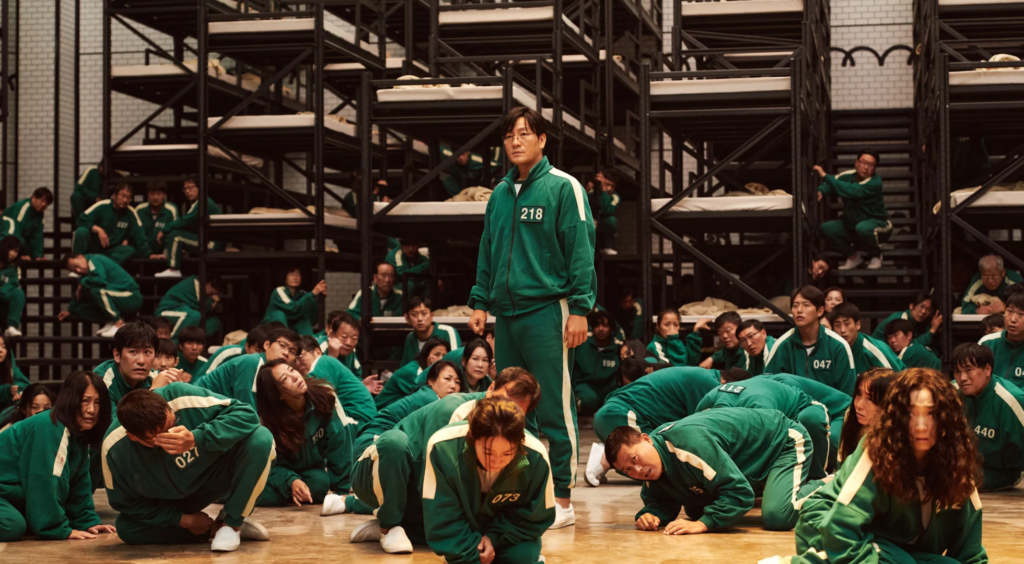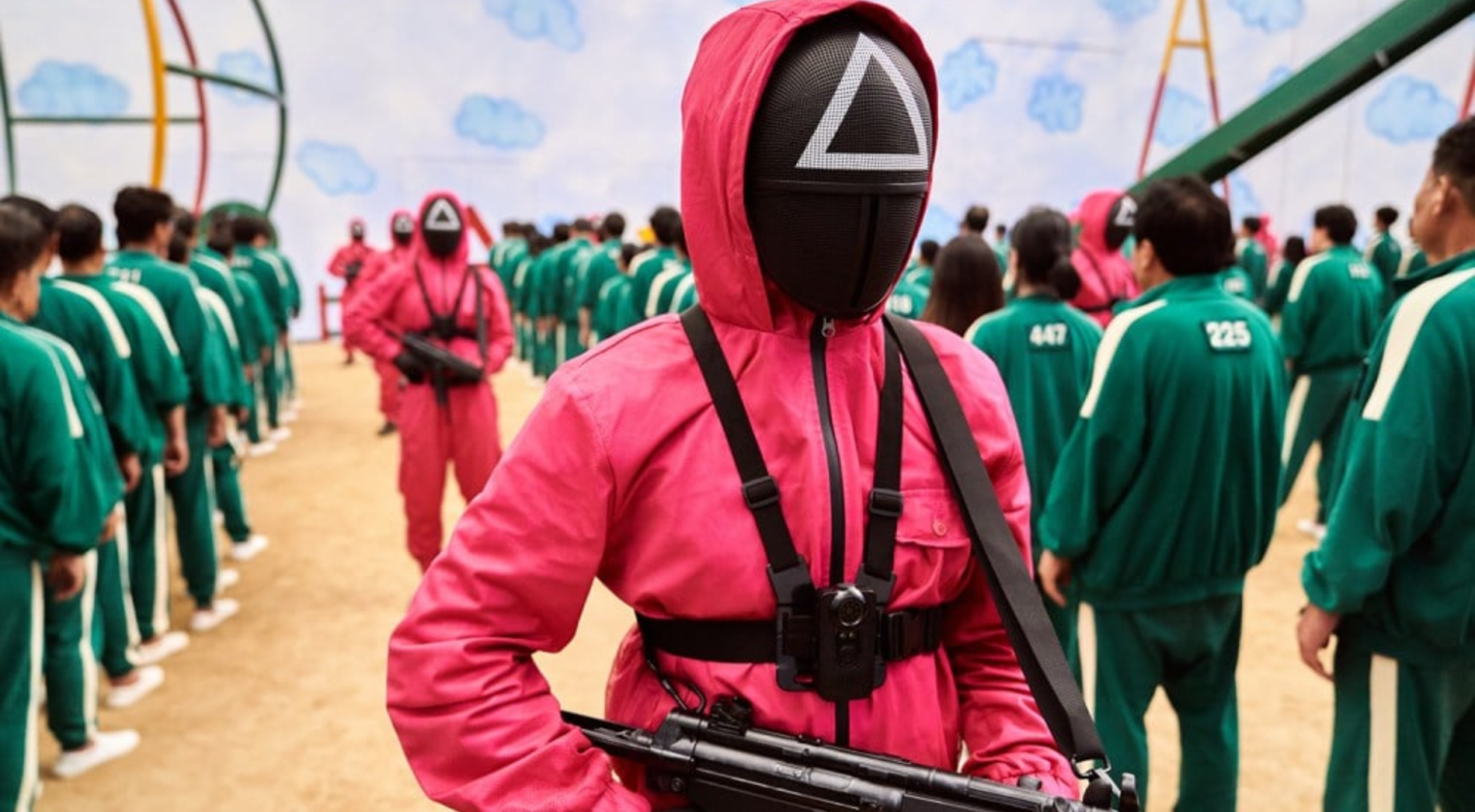The End of Squid Game and Its Lasting Impact on South Korea
Millions of fans around the world bid farewell to Squid Game, Netflix’s Emmy-winning Korean drama that took the world by storm. With its third and final season now streaming, the dystopian thriller closes a chapter in global entertainment. But in South Korea, where the story was born, the show’s end has reignited conversations about the grim Squid Game reality in South Korea.

From suffocating debt to cut-throat competition and youth unemployment, Squid Game mirrored real-life issues that continue to plague many South Koreans. As the fictional games end, the harsh truths they reflect remain unchanged.
Squid Game South Korea Origins: A Game Born from Harsh Reality
Squid Game isn’t just a brilliant piece of fiction—it’s a mirror held up to South Korean society. The creator, Hwang Dong-hyuk, famously stated that the show was inspired by his own financial struggles during the 2008 economic crisis. The characters—a laid-off factory worker, a migrant laborer, a cryptocurrency scammer—aren’t exaggerated archetypes. They represent ordinary people battling economic despair.
In fact, Gi-hun, the series’ protagonist, was modeled after workers from the real-life 2009 SsangYong Motor factory strike, where layoffs led to a violent clash with riot police. The fact that Squid Game’s stories resonate so deeply isn’t just a credit to storytelling—it’s a sobering reminder of South Korea’s social inequality.
“The drama may be fictional, but it feels more realistic than reality itself,”
— Jeong Cheol Sang, film blogger
How Squid Game’s Final Season Reflects South Korea’s Real Struggles
With Season 3 wrapping up the saga, many South Koreans have turned inward, using the show as a lens to reflect on their own lives. One YouTube commenter noted:

“It reflected reality so well, like how in real life, at work, it’s just full of ruthless people ready to crush you.”
While international audiences praised the final episodes for their intense drama and philosophical themes, South Korean viewers were more focused on how closely it paralleled their daily battles—crushing workloads, unstable jobs, and the constant fear of financial ruin.
Squid Game South Korea Parade: A Mix of Symbols and Contradictions
Despite its somber themes, Squid Game was celebrated in downtown Seoul with a massive parade. Pink-suited guards, giant animatronic dolls, and fans filled the streets in a carnival-like sendoff.
Yet, the fanfare contrasts sharply with the show’s message. The spectacle highlighted South Korea’s growing cultural influence—through K-pop, K-dramas, and global streaming—but also underscored the disconnect between pop culture success and everyday struggles.
Newly elected President Lee Jae-myung has pledged to boost “K-culture exports,” citing Squid Game alongside Parasite and BTS. But critics argue that celebrating these cultural wins shouldn’t overshadow the deep socioeconomic inequalities they portray.
Divided Over the Ending: Did Gi-hun’s Sacrifice Go Too Far?
The final episode of Squid Game Season 3 has left audiences divided. Gi-hun, in a twist that shocked many, sacrifices himself to save another contestant’s baby. While some praised the act as deeply moving, others found it disjointed from the show’s core message of survival in a brutal system.
On South Korean forum Nate Pann, one user wrote:
“The characters’ excessive altruism was disturbing—almost to the point of seeming unhinged.”
Yet, another viewer countered:
“As much as we wanted Gi-hun to take revenge and shut down the games, that’s not the world we live in. The ending reflects that truth.”
Hwang Dong-hyuk acknowledged the mixed reactions:
“By seasons two and three, expectations were sky high… Everyone expected something different.”
What Made Squid Game So Relatable?
The reason for Squid Game’s emotional power lies in its themes:
- Debt and Desperation: South Korea has one of the highest levels of household debt among developed nations. Many young Koreans feel trapped by financial burdens before even starting adult life.
- Cutthroat Education System: The show’s portrayal of endless competition echoes the pressure of South Korea’s university entrance exams, often considered a “life-defining” moment.
- Job Market Struggles: Unemployment and job insecurity are rampant, especially among youth. Even prestigious degrees don’t guarantee a stable future.
Gi-hun’s Journey Reflects South Korea’s Dilemma
Throughout the series, Gi-hun transforms from a desperate gambler to someone who chooses morality over survival. His journey is as much a metaphor for modern South Korea as it is a narrative arc.
“That paradox—of cruelty and warmth coexisting—is what made the finale so moving,” said Mr. Jeong, a local film blogger.
In the final moments, Squid Game reminds us that even in systems built on cruelty, empathy can exist. It’s a sobering but hopeful message.

What’s Next for Squid Game—and South Korea?
With hints of a potential American spinoff teased in the final scene featuring Cate Blanchett, Squid Game’s story might not be over. However, in South Korea, the broader conversation has shifted from television back to reality.
The popularity of Squid Game has already sparked greater scrutiny of labor policies, mental health care access, and income inequality. Whether this translates into tangible reform remains uncertain.
Conclusion: Squid Game Ends, But Its Lessons Linger
As the Squid Game reality in South Korea continues, the end of the series serves not as closure, but as an invitation. An invitation to reflect, reform, and reimagine a society where people don’t have to fight to survive.
While viewers worldwide mourn the end of a gripping series, South Koreans are left facing the daily echoes of its message.
Because for many in South Korea, the game isn’t fiction—it’s life.




